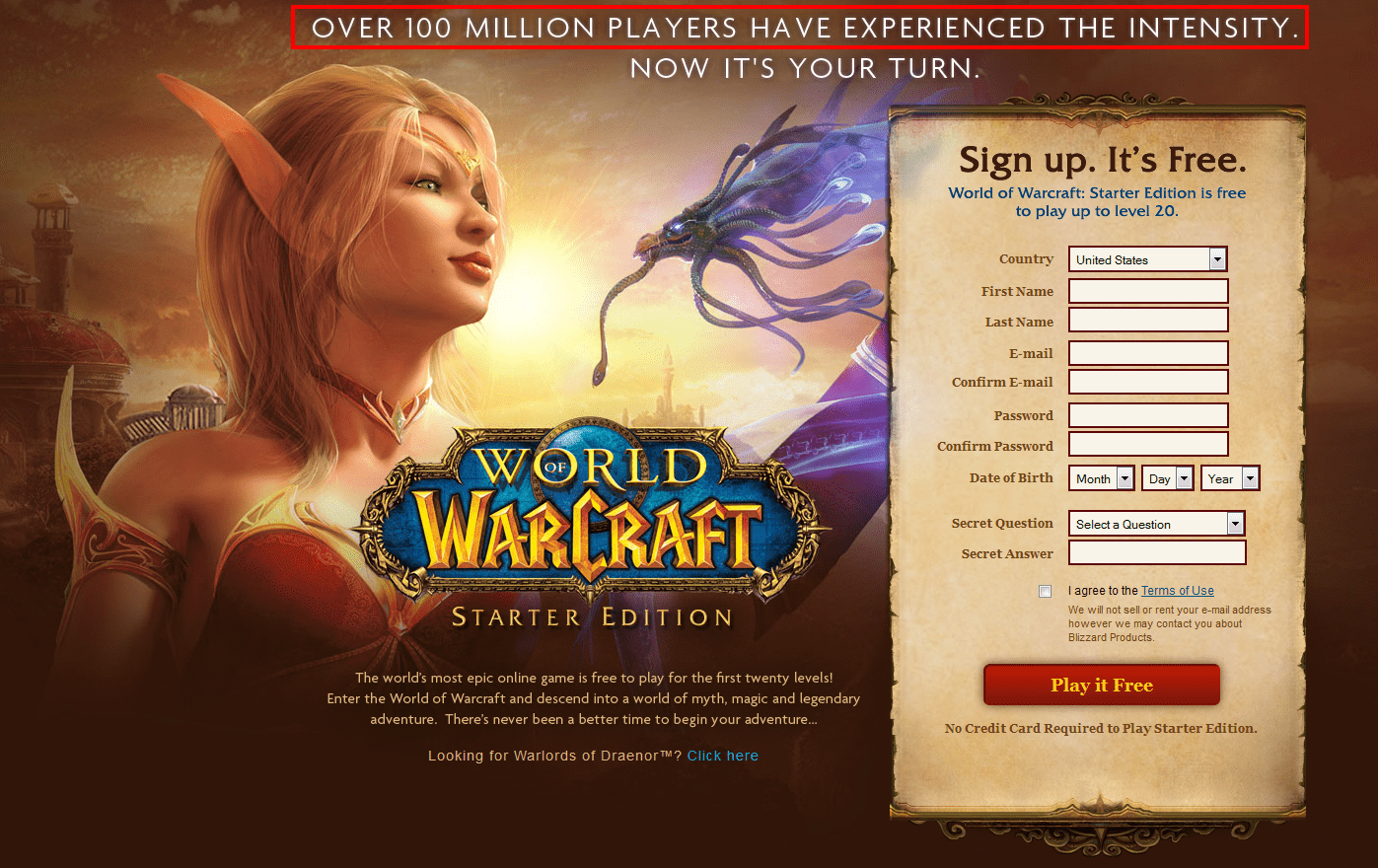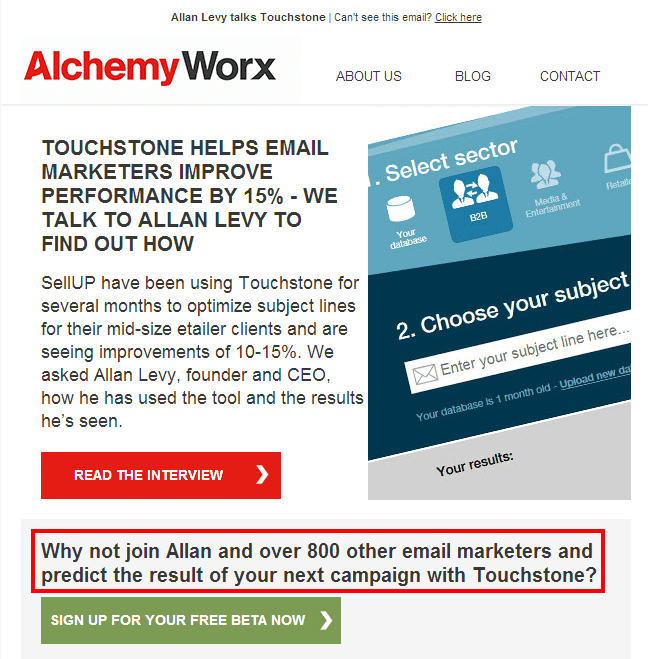Examples showing the value of social proof in boosting email subscriptions
 If you’ve ever watched sitcoms, you probably have a good idea what 'canned laughter' is - it’s a track of 'people laughing played in the background' every time there is something funny on the screen. This way TV producers can alter our perception of a particular scene as its perceived to be funnier. It’s not a secret trick psychologists have been silent about, but one of behavioural patterns we all follow intuitively. It’s called social proof, and it can throw a whole new light on your email marketing operations.
If you’ve ever watched sitcoms, you probably have a good idea what 'canned laughter' is - it’s a track of 'people laughing played in the background' every time there is something funny on the screen. This way TV producers can alter our perception of a particular scene as its perceived to be funnier. It’s not a secret trick psychologists have been silent about, but one of behavioural patterns we all follow intuitively. It’s called social proof, and it can throw a whole new light on your email marketing operations.
Social proof is a phenomenon occurring when people undergo a process of decision-making. Our brains are programmed to automatically follow other people’s behaviour.
Once we notice a large group of individuals have made certain decisions, it is very likely that we will perceive it to be a good one and be persuaded to do the same. It’s a way of people copying the behaviour of others!. So this valuable information is key as it can be useful for growing your subscriber list, promoting a product or generating more conversions.
Social Proof in subscriber list growth
Large numbers have the power of attracting people’s attention. So, if there are a lot of people who already signed up to your subscriber list, don’t keep it a secret.
Revealing the actual number of subscribers opting in to receive your messages is a clear signal that your content is interesting and relevant for many people. Additionally, it triggers subconscious desire to follow the crowd’s behaviour
Many brands use this technique to be more efficient in acquiring email addresses of website visitors. Here is how Brain Pages and Do The Yoga highlight their number of subscribers:


Social Proof in product promotion
Sometimes we make bad choices, but our brain processes even the most irrational decisions in order to find a good reason to support them. Usually, it’s backed up by the opinion of a brand influencer or observation of other people’s behaviour. That’s why we are flooded with testimonials and reviews of products made by well-recognized professionals with considerable authority.
As being a subject to authority is determined by different behavioural patterns, there are still social proof elements in this technique. They're hidden in the number of positive opinions about the product and faces of people sharing this opinion.
Posting many positive comments about a product is a way of telling people that a large group of people is happy about it. Better yet if there are influencers in this group. Here is how LinkedIn encourages to join their network:

Source: LinkedIn
Blizzard Entertainment also decided to use this method and invites to join a group of over 100 million World of Warcraft players:

Unless we are not loyal to a certain brand, presented with two alternative products that are priced similarly, we tend to choose the one of a better quality. But is there a proven way to measure quality? One good indicator of quality are awards won by the product. Such accolade is a great vehicle for driving further positive opinions and recommendations.
How to increase conversions
Regardless of what conversion in your business means, social proof can also make a difference here. Just brag about the number of clients who followed your call to action and are happy about the result. If the figure is a considerable, , chances are that the rest will follow without giving it a second thought. In product promotion, the authority of influencers is key, but then it’s better to enhance social proof’s effect by allowing your prospects to identify with the group of existing clients. This method has been used by Alchemy Worx – a well-known email marketing agency. In their newsletter sent to thousands of marketers they emphasized that a new tool they were promoting at that time had already been in use by over 800 other marketers.

Negative effects of social proof
Applying the social proof technique shouldn’t be an option in some cases. If you don’t want social proof to have an opposite effect, don’t reveal the number of evangelists in the following cases:
- Your subscriber list size is not impressive
- There haven’t been multiple positive comments on your product
- Few clients tried your product so far.
Also, mind the tone used for communicating your success. It’s important to keep it positive. By writing:
'Many others missed the opportunity to…'
we’re actually making a prospect think that since many people didn’t take that chance, it must have been a good decision, after all. It’s a subconscious thought that appears in people’s mind when encountering a negative message. In order to make sure prospects make the right choices (for you), a marketer needs to choose their words intelligently.
In 1972, American researchers, Mary Smyth and Raymond Fuller, described 'canned laughter' as an efficient tool for altering perception of received information. It took place when the first email ever had been sent a year earlier over the ARPANET network and marketing, as we know it, was in its infancy. Nevertheless, thanks to researchers, now we are consciously making use of behavior patterns. Just keep these 3 simple rules in mind and you will maximize your email marketing effects:
- Rule 1. Show how many subscribers are there in your list
- Rule 2. Share positive opinions about your product
- Rule 3. Let everyone see who is your client
 Thanks to Marcin Chruszcz for sharing his advice and opinions in this post. Marcin is an Email Marketing Specialist at ExpertSender. As an expert in email and deliverability Marcin brings years of experience managing email programs for top clients. ExpertSender is an ESP for medium-sized and enterprise-grade companies. With offices located in the US, EU, Russia and China it deploys 15 billion email messages on behalf of its clients every year. Intuitive interface goes hand in hand with advanced features, including the acclaimed segmentation, marketing automation, throttling, IP volume balancing, list scalability, content management and robust reporting. Clients also benefit from proactive dedicated support in the areas of: strategy, compliance and deliverability. You can connect with Marcin on LinkedIn.
Thanks to Marcin Chruszcz for sharing his advice and opinions in this post. Marcin is an Email Marketing Specialist at ExpertSender. As an expert in email and deliverability Marcin brings years of experience managing email programs for top clients. ExpertSender is an ESP for medium-sized and enterprise-grade companies. With offices located in the US, EU, Russia and China it deploys 15 billion email messages on behalf of its clients every year. Intuitive interface goes hand in hand with advanced features, including the acclaimed segmentation, marketing automation, throttling, IP volume balancing, list scalability, content management and robust reporting. Clients also benefit from proactive dedicated support in the areas of: strategy, compliance and deliverability. You can connect with Marcin on LinkedIn.





















